题目内容
The tree can not put up with the cold winter; you had better do something to help it ________ frost.
- A.defend
- B.defeat
- C.resist
- D.reject
resist“抵制”,resist通常可以和frost, disease等搭配。

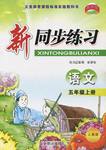 教学练新同步练习系列答案
教学练新同步练习系列答案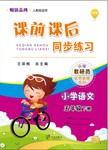 课前课后同步练习系列答案
课前课后同步练习系列答案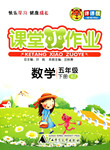 课堂小作业系列答案
课堂小作业系列答案 黄冈小状元口算速算练习册系列答案
黄冈小状元口算速算练习册系列答案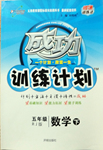 成功训练计划系列答案
成功训练计划系列答案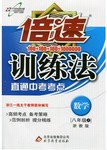 倍速训练法直通中考考点系列答案
倍速训练法直通中考考点系列答案
Outside her shabby cottage, old Mrs. Tailor was hanging out laundry on a wire line, unaware that some children lay hidden in the leaves of a nearby tree watching her every move. They were determined to find out if she really was a witch.
They watched as she took a broomstick to clean the dirt from her stone steps. But, much to their disappointment, she did not mount the broomstick and take flight. Suddenly, the old lady’s work was interrupted by the cackling of her hen—a signal that an egg had been laid in the warm nest on top of the haystack.
The old broomstick was put aside as she hobbled off towards the haystack followed by Sooty, a black cat she had rescued from a fox trap some time back. With only three legs, it was hard for Sooty to keep up with the old lady. The cat provided proof—the children were sure that only a witch could own a black cat with three legs.
There, standing on a wooden box, was Mrs. Tailor, stretching out to gather her precious egg. Taking the egg in one of her hands, she began to climb down when, without warning, the box broke and the old lady fell.
“We have to got and help her,” whispered Amy.
“What if it is a trick?” replied Ben.
“Don’t be silly, Ben. If she were a witch, she would have turned us into frogs already,” reasoned Meg. “Come on Amy, let’s go.” The girls climbed down the tree and ran all the way to the haystack.
Approaching carefully, they could see a wound on the old lady’s face. She had knocked her head on a stone and her ankle was definitely broken. “Go and get Dad,” Amy yelled to her brother. “Tell him about the accident.”
The boys did not need another excuse to leave. They ran as fast as they could for help, hoping that Mrs. Tailor would not wake and turn the girls into frogs.
【小题1】. Why were the children hiding in the tree?
| A.They wanted to watch Mrs. Tailor do her housework closely. |
| B.They were playing a hide-and-seek game |
| C.They wanted to find out if the rumors about Mrs. Tailor were true |
| D.They were pretending to be spies |
| A.her front steps were clean | B.she noticed the children in the tree |
| C.she was ready to take a flight | D.she heard the hen cackling |
| A.he thought that she could be tricking them |
| B.he knew that they could not have been in the tree |
| C.he did not see the old lady fall down |
| D.he was afraid of the three-legged cat |
| A.Make hay while the sun shines. |
| B.Never judge a book by its cover. |
| C.People in glasshouses should not throw stones. |
| D.A bird in the hands worth two in the bush. |